Perspectives
from John B. Cobb and Seyyed Hossein Nasr S. M. Abu Sayem
Visit to download the full and correct content document: https://ebookmass.com/product/religion-and-ecological-crisis-christian-and-muslim-pe rspectives-from-john-b-cobb-and-seyyed-hossein-nasr-s-m-abu-sayem/
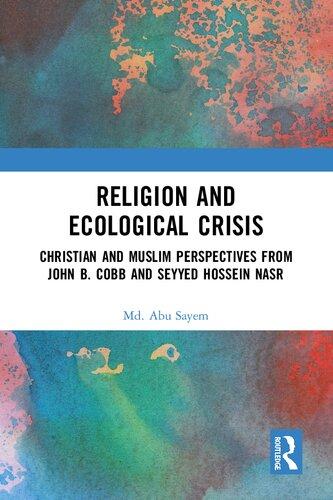
More products digital (pdf, epub, mobi) instant download maybe you interests ...
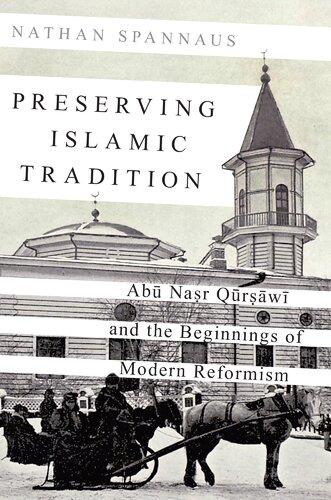
Preserving Islamic Tradition: Abu Nasr Qursawi and the Beginnings of Modern Reformism Nathan Spannaus
https://ebookmass.com/product/preserving-islamic-tradition-abunasr-qursawi-and-the-beginnings-of-modern-reformism-nathanspannaus/
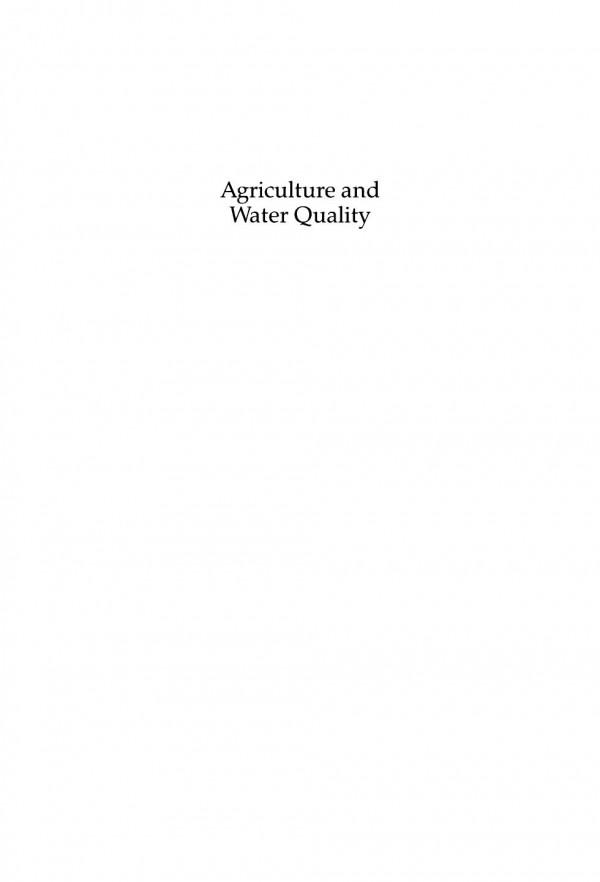
Agriculture and Water Quality: International Perspectives John B. Braden (Editor)
https://ebookmass.com/product/agriculture-and-water-qualityinternational-perspectives-john-b-braden-editor/
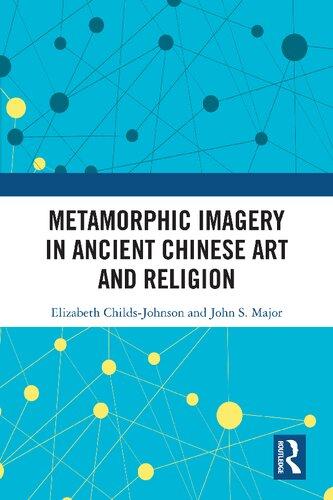
Metamorphic Imagery in Ancient Chinese Art and Religion
1st Edition John S Major
https://ebookmass.com/product/metamorphic-imagery-in-ancientchinese-art-and-religion-1st-edition-john-s-major/
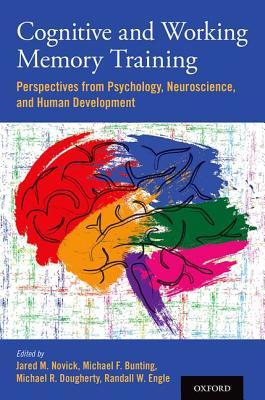
Cognitive and Working Memory Training: Perspectives from Psychology, Neuroscience, and Human Development
Jared M. Novick
https://ebookmass.com/product/cognitive-and-working-memorytraining-perspectives-from-psychology-neuroscience-and-humandevelopment-jared-m-novick/
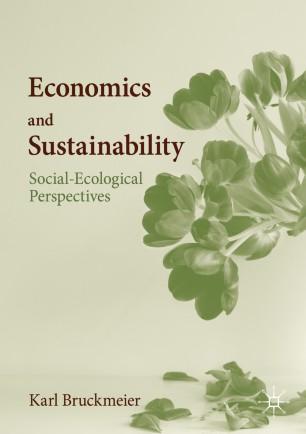
Economics and Sustainability: Social-Ecological Perspectives 1st ed. Edition Karl Bruckmeier
https://ebookmass.com/product/economics-and-sustainabilitysocial-ecological-perspectives-1st-ed-edition-karl-bruckmeier/
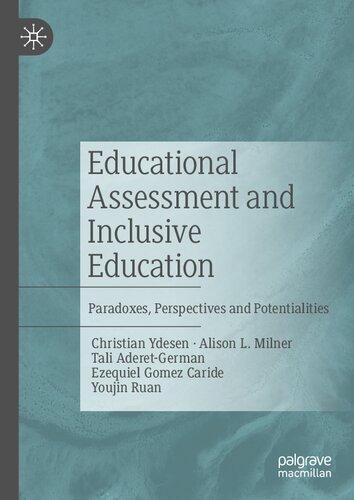
Educational Assessment and Inclusive Education: Paradoxes, Perspectives and Potentialities Christian Ydesen
https://ebookmass.com/product/educational-assessment-andinclusive-education-paradoxes-perspectives-and-potentialitieschristian-ydesen/
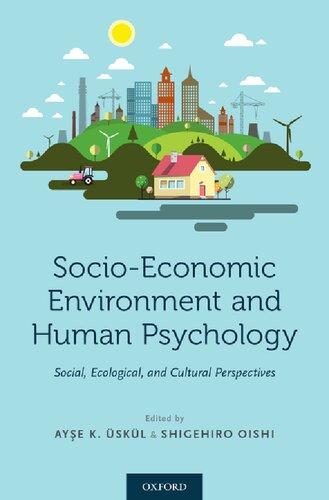
Socio-Economic Environment and Human Psychology: Social, Ecological, and Cultural Perspectives Ay■e K. Üskül
https://ebookmass.com/product/socio-economic-environment-andhuman-psychology-social-ecological-and-cultural-perspectivesayse-k-uskul/
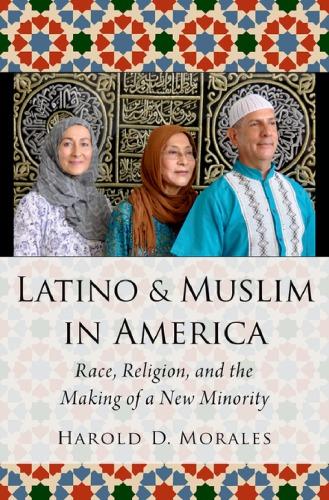
Latino and Muslim in America: Race, Religion, and the Making of a New Minority Harold D Morales
https://ebookmass.com/product/latino-and-muslim-in-america-racereligion-and-the-making-of-a-new-minority-harold-d-morales/
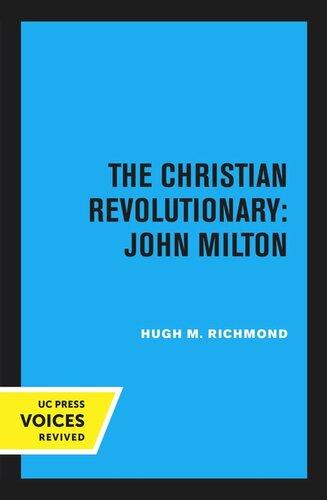
The Christian Revolutionary: John Milton Hugh M. Richmond
https://ebookmass.com/product/the-christian-revolutionary-johnmilton-hugh-m-richmond/
RELIGION AND ECOLOGICAL CRISIS
CHRISTIAN AND MUSLIM PERSPECTIVES FROM JOHN B. COBB AND SEYYED HOSSEIN NASR
Md. Abu Sayem


“Religious voices must be included in the global response to the ongoing environmental crisis and impending climate catastrophe, which threaten all life on earth. People of faith, under the influence of certain theological dogma, have contributed to the current situation, but by reflecting on the human condition and sacredness of life and natural processes, religious devotees may also play a significant role in stemming the tide of ecological degradation and possibly reversing some destructive trends. This book invokes two prominent scholars –one Christian, one Muslim – who have been warning us about the doom we face if we do not change our ways, but whose admonitions have gone largely unheard by the general public and even the majority of their own respective co-religionists. Md. Abu Sayem’s ambitious yet well-intentioned effort to bring the views of John B. Cobb and Seyyed Hossein Nasr into dialogue on the most important problems of our time will not save the world by itself but may present a useful step in increasing awareness of the imminent need to act.”
James D. Frankel, Associate Professor of Religious Studies and Director of the Centre for the Study of Islamic Culture, Chinese University of Hong Kong
“This book is an excellent study of two leading figures in the field of religion and ecology. Cobb and Nasr each made significant contributions from Christianity and Islam respectively. Md. Abu Sayem has created a valuable analysis of their thought that includes a wonderful balance of appreciation and critique.”
Mary Evelyn Tucker, Yale Forum on Religion and Ecology
“For more than a half century now scholars have been pointing out that the worsening environmental situation originates in a crisis not of technology but of values, of which religions remain the primary source. This book provides a sympathetic yet critical assessment comparing the contributions made by a pair of environmentalist thinkers representing the world’s two largest religious traditions, Christianity and Islam. The author’s choice to focus on the works of Christian theologian John B. Cobb and Muslim philosopher Seyyed Hossein Nasr not only highlights the seminal contributions of these two important individuals, but helps to illuminate more general issues pertaining to the problems and possibilities inherent in the project of deriving an ecological reading of the two religious frameworks that inform their thought.”
Richard Foltz, Professor of Religions and Cultures, Concordia University, Montréal, Canada
“This monograph is focused on a critical examination of the forces of economism and scientism that has subjected planet Earth to a triple crisis involving climate change, loss of biodiversity and all-consuming
pollution. Abu Sayem has dug deep into John B. Cobb’s eco-theological vision and Seyyed Hossein Nasr’s eco-spiritual vision and helped us to make sense of the approaches, the former from a Christian perspective and the second from an Islamic, to get to grips with our current predicament. In this he has succeeded admirably and I commend this work not only to future budding researchers who may wish to engage with this subject but also to the lay public who may recognise in this approach the hope it can give to saving us from the emerging enormities.”
Fazlun Khalid, founder Islamic Foundation for Ecology and Environmental Sciences
“Given the huge impact of religions on humanity across cultural spheres, the urgency of exploring eco-religious perspectives should be abundantly evident in the 21st century. In Religion and Ecological Crisis, Md. Abu Sayem faces the challenge head on in the case of two world religions, Christianity and Islam, and analyses John B. Cobb’s “ecological model” and Seyyed Hossein Nasr’s “sanctity of life” model, respectively. Furthermore, he discusses the pros and cons of these models in a comparative manner, illuminating their potential to make a difference both in the field of ecological sustainability and interreligious dialogue. I would warmly recommend this book to anyone involved in either field of study, or both.”
Ville Päivänsalo, ThD, Senior Lecturer, Diaconia University of Applied Sciences (Diak), Helsinki
“Congratulations to Dr. Sayem for this important and much needed work, especially as the world is looking for different means to address the multitude of crises, we are living through including the triple planetary crisis of climate change, ecosystem degradation and pollution. What is important about this work is the repeated messages by both Cobb and Nasr that the root causes to our current challenges is an ethical, moral, and spiritual one. This has been the focus of recent work by the Faith for Earth Initiative of UNEP and has seen many conferences focusing on this issue. Dr. Sayem’s work is certainly valuable in providing much food for thought. What is also interesting in Dr. Sayem’s work is the conclusions that we are basically in one boat together regardless of our religious background. This has been demonstrated by the common conclusions of both Cobb and Nasr, although using two different approaches. While the work on religions and ecology has grown substantially over the past few years, it is notable that the voices of religions are still not too loud or not enough as opposed to secular ones, especially at international and intergovernmental fora. The work of Dr. Sayem is a substantive addition and contribution to making the case for inter and intra-faith dialogue and
cooperation for the benefit of the people and the planet. Thank you for this important and rich monograph.”
Dr. Iyad Abu Moghli, the founder and director of the United Nations Environment Programme (UNEP) Faith for Earth Initiative
“This valuable monograph compares the eco-theological approaches of the first pioneers of ecotheology in Christianity and Islam respectively which is to say the North American process theologian John B. Cobb, who taught at Claremont Colleges, California, and the Iranian Sufi philosopher Seyyed Hossein Nasr who taught at Harvard University. Professor Sayem provides a fascinating inter-religious profile of Cobb and Nasr which is both expository and helpfully critical in tone. There is no other study along these lines, the book is very readable, and I highly commend it.”
Michael Northcott, Professor Emeritus of Ethics at the University of Edinburgh
“Dr. Md. Abu Sayem’s present work is an excellent introduction to two world class thinkers, Seyyed Hossein Nasr from the Islamic tradition and John B. Cobb from the Christian tradition, as they understand the root causes of the ongoing environmental crisis and envision the ways out of it. People of all religions stand to benefit from the many profound perspectives of Nasr and Cobb shared in this scholarly work.”
Dr. Tarik M. Quadir, author of Traditional Islamic Environmentalism: The Vision of Seyyed Hossein Nasr
“Healthy ecosystems are home to many species, and also to many religions, theologies, and philosophies. In Religion and Ecological Crisis, Md Abu Sayem offers a crystal-clear comparison of two of the most influential religious thinkers on the environment, John B. Cobb and Seyyed Hossein Nasr. Sayem’s approach is really a double comparison, connecting Cobb’s process thought to Nasr’s perennialism, as well as assessing the distinctively Christian and Muslim components of each thinker’s vision. The result is a complex, generous presentation that will inform and inspire all its readers”
Dan McKanan, Emerson Senior Lecturer, Harvard Divinity School
“In his book, Religion and Ecological Crisis: Christian and Muslim Perspectives from John B. Cobb and Seyyed Hossein Nasr, Dr. Abu Sayem has presented the spiritual roots of the modern ecological crisis. By focusing on Christianity and Islam, the Author demonstrates how traditional views of nature, provided a more sustainable and functional relationship between humans and the environment.”
Mehdi Aminrazavi, Professor of Philosophy and Religion,University of Mary Washington

Religion and Ecological Crisis
Religion and Ecological Crisis delves into the complex relationship between religions and ecology, presenting Christian and Islamic perspectives on ecological issues through the work of John Boswell Cobb and Seyyed Hossein Nasr. It examines how faith traditions of the world see and respond to our current unprecedented climate change issues.
This is the first comparative study of Cobb and Nasr’s eco-religious understanding and explores how their prescriptions can contribute alternatively to techno-scientific initiatives in environmental sustainability. Taking Cobb’s “economism” and Nasr’s “scientism” as the key concepts for surveying the roots of the ecological crisis, the book offers interdisciplinary and interreligious insights into the debates about ecological equilibrium, motivational awareness in human mind, and entanglements between religion and the environment.
This will be an insightful resource for policy makers, faith leaders, and academics working in Environmental Studies and Religious Studies.
Md. Abu Sayem is an Associate Professor in World Religions and Culture at the University of Dhaka. His research interest includes religions and environmental issues, human responsibilities to nature, eco-religions, ecotheology, eco-spirituality, ecological equilibrium, moral traditions and environmental sustainability, ecological justice, eco-Islam, multifaith dialog on ecological crisis, environmental ethics, multifaith initiatives for reducing environmental problems, religions and environmental problems in Bangladesh, etc.

Religion and Ecological Crisis
Christian and Muslim Perspectives from John B. Cobb and Seyyed
Hossein Nasr
Md. Abu Sayem
First published 2023 by Routledge
4 Park Square, Milton Park, Abingdon, Oxon OX14 4RN and by Routledge
605 Third Avenue, New York, NY 10158
Routledge is an imprint of the Taylor & Francis Group, an informa business
© 2023 Md. Abu Sayem
The right of Md. Abu Sayem to be identified as author of this work has been asserted in accordance with sections 77 and 78 of the Copyright, Designs and Patents Act 1988.
All rights reserved. No part of this book may be reprinted or reproduced or utilised in any form or by any electronic, mechanical, or other means, now known or hereafter invented, including photocopying and recording, or in any information storage or retrieval system, without permission in writing from the publishers.
Trademark notice: Product or corporate names may be trademarks or registered trademarks, and are used only for identification and explanation without intent to infringe.
British Library Cataloguing-in-Publication Data
A catalogue record for this book is available from the British Library
Library of Congress Cataloging-in-Publication Data
A catalog record has been requested for this book
ISBN: 978-1-032-24947-6 (hbk)
ISBN: 978-1-032-26238-3 (pbk)
ISBN: 978-1-003-28728-5 (ebk)
DOI: 10.4324/9781003287285
Typeset in Sabon by MPS Limited, Dehradun
Our Lord! You have not created (all) this without purpose… Quran, 3:191
And to Allah (almighty God) belong all that is in the heavens and all that is in the earth. And Allah is Ever Encompassing all things.
Quran, 4:126
And to Allah (almighty God) belong the East and the West, so wherever you turn there is the face of Allah.
Quran, 2:115
The seven heavens and the earth and all that is therein glorify Him and there is not a thing but glorifies His praise. But you understand not their glorification. Truly, He is Ever Forbearing, Oft-Forgiving.
Quran, 17:44
In order that you do not transgress due balance. And observe the weight with equity and do not make the balance deficient. And the earth He (Allah) has put down (laid) for the creatures.
Quran, 55:8–10
Corruption has appeared throughout the land and sea by what the hands of humans have earned, He (almighty God) will let them taste part of (the consequence of) what they have done, perhaps they will return to right actions.
Quran, 30:41
But ask the animals, and they will teach you; or the birds of the air, and they will tell you; or speak to the earth, and it will teach you; or let the fish of the sea inform you. Which of all these does not know that the
hand of the Lord has done this? In his hand is the life of every creature and the breath of all mankind.
Job, 12:7–10
Hear the word of the Lord, you Israelites, because the Lord has a charge to bring against you who live in the land: There is no faithfulness, no love, no acknowledgement of God in the land. There is only cursing, lying and murder, stealing and adultery; they break all bounds, and bloodsheds follow bloodsheds. Because of this, the land mourns, and all who live in it waste away; the beasts of the field and birds of the air and the fish of the sea are dying.
Hosea, 4:1–3
Let the heavens be glad, and let the earth rejoice; let the sea roar, and all that fills it; let the field exult, and everything in it.
Psalm, 96:11
Since the roots of our trouble are so largely religious, the remedy must also be essentially religious, whether we call it that or not.
White (1967:1207)
To be at peace with the Earth one must be at peace with Heaven. Seyyed Hossein Nasr (1976:14)
The whole universe is one vast ecological system.
John B. Cobb, Jr. (1972:113)
Dedicated to those who have attempted to restore and revitalize a harmonious relationship between nature and human beings through the connection of God.

Abbreviations
ARC Alliance of Religion and Conservation
BAS Bulletin of the Atomic Scientists
BCRPWA Berkley Center for Religion, Peace and World Affairs
CE Common Era
CNG Compressed Natural Gas
CPS Center for the Process Studies
CUHK Chinese University of Hong Kong
DoE Department of Environment
FORE Forum of Religion and Ecology
GDP Gross Domestic Product
GISS (NASA’s) Goddard Institute for Space Studies
GNP Gross National Product
GOs Governmental Organizations
IPCC (UN’s) Intergovernmental Panel on Climate Change
IPE Interfaith Partnership for the Environment
ISEW Index of Sustainable Economic Welfare
LPG Liquefied Petroleum Gas
MIT Massachusetts Institute of Technology
NAS (U.S.A’s) National Academy of Sciences
NASA National Aeronautics and Space Administration
NCIPL North Carolina Interfaith Power & Light
NGOs Non-Governmental Organizations
RNGOs Religious Non-Governmental Organizations
SDGs Sustainable Development Goals
UN United Nations
UNEP United Nations Environmental Program
UNESCO UN Educational, Scientific and Cultural Organization
UNFCCC United Nations Framework Convention on Climate Change
UNU – EHS United Nations University – Institute for Environment and Human Security
WCC World Council of Churches
Acknowledgments
Bismi(A)llāhir Raḥmānir Raḥīm (In the name of Allāh ([almighty God], the Most Gracious, the Most Merciful). Assalāmu ‘Alaykum wa-Raḥmatu(A) llahi wa-Barakāthuhu (may the peace and blessings of Allah (God) be upon you).
One of the precious sayings of Prophet Muhammad (peace be upon him): “He who is not grateful to people, is not grateful to God” (Tirmidhi, Hadith No. 1954) highly inspired me to become thankful to those who helped me at any form. Here my acknowledgments begin with glorifying God because I believe that it was God’s very especial blessing on me that I became able to produce a monograph from my Ph.D. Dissertation. The present book is an outcome of my intellectual endeavor, which was developed over the years of my doctoral studies at the Chinese University of Hong Kong from 2016 to 2020, and some portions of which were published in form of research papers by some peer-reviewed journals before publishing this monograph. Needless to say, the contributions of some persons and institutes to this process were directly and indirectly involved, which oblige me to acknowledge them.
I am deeply thankful to my Ph.D. supervisor Professor Lai Pan-Chiu in Religious Studies at the Chinese University of Hong Kong (CUHK) for his relentless support from getting the admission to accomplishing the dissertation. Without his strong recommendation, it was very difficult for me to get the Hong Kong PhD Fellowship Scheme (HKPFS) 2016–2017 to support my doctoral studies. His intensive supervision made me qualified for the Degree of Doctor of Philosophy. With these, Professor Lai obliges me to be grateful to him forever.
I am so thankful to my Ph.D. co-supervisor Professor James D. Frankel in Religious Studies at CUHK for his continuous inspiration in developing some relevant arguments to keep the present study praiseworthy from an academic point of view. It was a great opportunity to learn from him for improving my academic English writings over the years of my doctoral study. Thus, Professor Frankel causes me to remain grateful to him forever.
I am deeply indebted to the thesis committee (Professor Tobias BRANDNER [chairman], Professor LAI Pan-Chiu [supervisor], Professor James D. FRANKEL [co-supervisor], Professor KUNG Lap Yan [internal examiner], Professor BAHARUDDIN Azizan of the Institute of Islamic Understanding Malaysia [external examiner], and Professor KWOK Wai Luen of Hong Kong Baptist University [external examiner]) for their individual opinions and evaluation, which helped me to finalize my Dissertation. The committee deserves especial mention here for their recommendation of the Degree.
I am thankful to Professor John B. Cobb, Jr. and Professor Seyyed Hossein Nasr for their scholarly comments on some parts of my dissertation and for their valuable time (especially their willingness to be interviewed). I would like to thank Dr. Tarik M. Quadir, Dr. Omosulu Rotimi, and Dr. Ian Mevorach for giving me an opportunity to read their Ph.D. dissertations. I am grateful to Professor Farhan Nizami, the Founder-Director of the Oxford Centre for Islamic Studies, for his encouragement to make this study more readable for non-academics. I express my heartiest gratitude to Dr. Peter Youngblood and Dr. Ruslan Yusupov Solaiman for going through the dissertation and for continued cooperation in finalizing this. Dr. Peter and Dr. Ruslan are my two best friends and I always remember their sincerity toward me.
My Ph.D. Dissertation research project would not be possible without funding, so my deepest thanks go to the University Grants Committee (UGC) of the Hong Kong Government for offering a Hong Kong Ph.D. Fellowship Scheme (HKPFS) award and to the Chinese University of Hong Kong for a conditional offer of a Postgraduate Studentship (PGS) before the confirmation of the HKPFS. If the University of Dhaka – where I teach in the Department of World Religions and Culture – had not granted me a three-year study leave, I could not have begun my dissertation project, so I am grateful to the University of Dhaka for granting me the required leave with payment.
I should thank International Cooperation in Education and Research (OeAD-GmbH) for granting me an Ernst Mach-Fellowship award (from November 2018 to July 2019) as a visiting Ph.D. student in Religious Studies at the University of Vienna. My special thanks go to Professor Lukas Pokorney of Religious Studies and Professor Angela Kallhoff of Ethics at the University of Vienna for their cooperation. I acknowledge the support of the Department of Religious Studies at the University of Vienna, which helped me complete the first draft of my dissertation.
I cannot forget the great sacrifice of my beloved wife Dr. Jibon Nesa and our two affectionate daughters Sarah Maliha Sayem and Amina Maria Sayem during my doctoral studies at the Chinese University of Hong Kong. I can realize how much suffering Dr. Jibon Nesa had to tolerate in Dhaka in my absence, it is not possible to compensate for those days of pains and troubles with any other things. Despite those untold sufferings, she continued her
strong support and encouraged me to accomplish the dissertation project in due time. I cannot express how deeply our daughters missed me and I missed them. Without the strong support of my wife, I cannot come to this level. My deepest thanks to my wife for expanding her continuous support and unfailing inspiration, and my sincerest gratitude to our both daughters for their prayers for quickly accomplishing the work. I also extend my thanks to my parents, parents-in-law, and all other nearest and dearest ones of my relatives for their sincere prayers and good wishes.
My profound gratitude to Professor Lai Pan-Chiu and Professor Seyyed Hossein Nasr for writing prefaces, to Professor John B. Cobb, Professor İbrahim Özdemir, and Professor Katherine Marshall for writing forwards, and to Professor James D. Frankel, Professor Mary Evelyn Tucker, Professor Richard Foltz, Professor Michael Northcott, Dr. Iyad Abu Moghli, Professor Ville Päivänsalo, Sheik Fazlun Khalid, Dr. Tarik M. Quadir, Professor Dan Mckanan, and Professor Mehdi Aminrazavi for writing the promotional blurbs and endorsement comments. Every one of them spent much time reading the monograph manuscript and promoting my humble effort. I am deeply indebted to them.
My heartiest gratitude is also to those ones whom I forget to mention here. Keeping all these valued cooperation and support in my mind, I sincerely pray to God for all these persons and institutions for their, directly and indirectly, involvement with me during my work in the Dissertation. May God grant them the best reward here and hereafter for their different sorts of assistance. Alḥamduli(A)llāh (all praise is due to Allāh, Lord of all the worlds), almighty God blessed me with this book publication.
Preface
I intend to tell you briefly a big story of how the idea of addressing the present environmental issues by connecting religions came to my mind. Seven years ago from now, it was in June 2015, as a Ph.D. student at the University of Dhaka (Bangladesh), I attended the Bergen Summer Research School (BSRS) of the University of Bergen (Norway). In that year, the BSRS held a leadership training program for some selective Ph.D. students on the theme of “Sustainable Developments Goals and Cultural Transformation.” This summer program instilled in me the academic value and significance of researching on environmental sustainability from a religious perspective. I recall the encouraging words of Professor Rune Nilsen (Professor Emeritus of Global Health at the University of Bergen) who worked as the scientific director of BSRS 2015. On the way to an excursion as a part of the summer school program, sat by Professor Nilsen on the bus and we talked about some important issues of our current ecological crisis. I was very much influenced by his inspirational words that academicians in the discipline of religious studies should play vital roles in growing a deeper awareness in the human mind of ecological sustainability. At one point, he suggested me to work on environmental issues by connecting religious moral teachings in these. Truly speaking, my active participation in BSRS 2015 and Professor Nilsen’s scholarly advices brought to my mind some important ideas for further thought on religion and environmental issues. After then, I diverted my concentration from a pure theological field to an interdisciplinary field like religions and environmental problems. I searched some world-famous universities in Asia, Europe, and North America for my doctoral research on ecological issues from religious perspectives. Finally, in 2016, I had an opportunity to work with Professor Lai Pan Chiu (my Ph.D. supervisor) and James D. Frankel (my Ph.D. co-supervisor) on religion and environmental issues as a Ph.D. student in Religious Studies at the Chinese University of Hong Kong (CUHK). In order to join this Ph.D. program, I had to cancel my earlier Ph.D. enrollment with the University of Dhaka.
Over the years from 2016 to 2020 I had to work hard to fulfill the requirements of a Ph.D. in Religious Studies. My course papers were prepared in a way that these were transformed later into some chapters of the
dissertation, which were published in some index (peer-reviewed) journals as research papers with required modification. Before submission of my final thesis to the Graduate School for the Degree of Doctor of Philosophy, I was blessed with some published journal articles, which were actually based on the chapters of my Ph.D. dissertation. Now I am going to publish my whole dissertation as a monograph. Some might ask why I am republishing published articles as different chapters in a monograph like this. In response to this query, it suffices to argue that there is a demand in the market and the wider academic world to see my Ph.D. dissertation as a published book, which should be based on my recent and relevant published papers, in order to address some questions and queries already offered by some scholars in the field. Keeping this pertinent point in mind, I did take almost one year for receiving some feedbacks from the readers of my published papers to enrich my current monograph, where I attempted my best to address the valued comments of my readers and accommodate their scholarly suggestions. That is why this initiative was taken. I hope this effort will be appreciated by my readers.
At the very beginning, this monograph project was a challenge for me. Now it is my contentment that I have completed this project and gained new academic skills. I expect that some people will find the reading of this work helpful. I am sorry that I could not overcome some other limitations and deficiencies, and I hope my readers will not be put off by my weakness in presentation and academic English writing. My readers will be the real evaluators of this work. Their constructive criticisms, comments, and suggestions will be appreciated for further revision.
In a few places, I have used some non-English words. All foreign words are used in italic form (for example, khalīfa). In the romanization of foreign words, I have followed the 1997 edition of the ALA-LC Romanization Table: Transliteration Scheme for Non-Roman Scripts. As for the citations in texts, notes and references, and in making the bibliography, I have followed the Publication Manual of the American Psychological Association (APA) 6th edition. According to APA (6th edition), the author’s surname and year of publication (and in some places page numbers) are noted within brackets in the body of tex and also in notes. In reference and the bibliography, cited works are arranged alphabetically with the surname of the (first) author, year of publication, title of the book/journal (in italics), place of publication, and page number in the case of journal articles and book chapters.
As for organization, I have used general numbers, for instance, 1., 2., 3., for the indication of chapters. In the text, the main headings are kept bold and the sub-headings are made italic with bold to show diference between them and also respective connection with them. My original Dissertation was structured into eight chapters, but the present monograph is transformed into six chapters so that readers cannot feel bore with reading this study. In the Dissertaion, the second chapter deals with Literature Review and the third chapter addresses Methodological Issues, Research Approach and Conceptual Foundations, which are incorporated briefly in the first chapter of
Preface
this monograph. If anyone wishes to see these in details, they are requested to read the original Dissertation.
As told before, some parts of this monograph have already been published by some referred journals, I am grateful to the editors of the journals for permitting me to reproduce the contents in this monograph. At the same time, I appreciate the Graduate School of the Chinese University of Hong Kong for allowing and inspiring research students to publish their dissertations. However, the below-mentioned papers were based on my dissertation and my present monograph is partially developed on their revised versions:
Sayem, Md. Abu (2018), A Scientific World-View of Nature and Environmental Problems with a special Concentration on Seyyed Hossein Nasr’s Understanding of Environmental Sustainability, Journal of Islam in Asia, 15(2), 312–328.
Sayem, Md. Abu (2019). Religions and Environmental Ethics: A Comparative Study of John B. Cobb, Jr. and Seyyed Hossein Nasr, Australian Journal of Islamic Studies, 4(3), 34–50.
Sayem, Md. Abu (2019), The Eco-Philosophy of Seyyed Hossein Nasr: Spiritual Crisis and Environmental Degradation, Islamic Studies, 58(2), 271–295.
Sayem, Md. Abu (2019), Environmental Crisis as a Religious Issue: Assessing some relevant Works and Activities on the Field, Asian Journal of Theology, 33(1), 127–147.
Sayem, Md. Abu (2021), Building Eco-theological and Bio-centric Approach to Environmental Ethics: John B. Cob’s Perspective, Religió: Jurnal Studi Agama-agama, 11(1), 26–49.
Sayem, Md. Abu (2021), Religions and Environmental Sustainability: Focusing Some Practical Approaches of John B. Cobb, Jr. and Seyyed Hossein Nasr, Australian Journal of Islamic Studies, 6(1), 65–80.
Sayem, Md. Abu (2022), The Eco-Religious Understanding of John B. Cobb, Jr. and Seyyed Hossein Nasr: A Comparative Study, Islamic Studies, 61(1), 47–64.
Associate Professor Md. Abu Sayem Department of World Religions and Culture, The University of Dhaka
Preface
Both the ecological crisis and Christian–Muslim dialog are important academic issues of public concern. There are many scholarly publications on either one of them, but it is very rare to combine them together. Dr. Sayem’s book makes an innovative contribution by viewing the ecological crisis from the perspective of Christian–Muslim dialog.
This book attempts to articulate a dialog on ecological issues between John B. Cobb, Jr., an influential Christian theologian, and Seyyed Hossein Nasr, a renowned Islamic scholar. It is rather interesting to note that these two scholars are so famous in their own fields that they heard about each other, but they have no direct dialog with each other before. In view of this, Dr. Sayem interviews Cobb and Nasr, respectively, in order to know their views on the relevant issues and on the other scholar. Based on the publications by or about these two intellectuals as well as the two valuable interviews conducted, Dr. Sayem critically and creatively compares their views on a wide range of issues related to religion and ecology, including their views on God, nature, humanity, science, technology, and the root(s) as well as possible solution(s) of the ecological crisis.
As a pioneering attempt to engage these two scholars in dialog on environmental issues, this book will benefit scholars and students who are interested in Cobb, Nasr, Christian-Muslim dialog, or religion and ecology.
Professor Pan-chiu Lai
Department
of Cultural and Religious Studies, The Chinese University of Hong Kong
Preface
It is not usual for a person about whose thought a work is written to write a preface for it, but Dr. Md. Abu Sayem, whom I advised during the process of writing the present book, asked me to compose a few words as a preface for it. I could not but accept especially in light of the fact that the work is also concerned with the thought of my old friend Prof. Cobb. He and I came to the field of environmental studies in relation to religion from different directions, he from religious studies and I from modern science especially physics, to the awareness of and interest in this all-important field.
Already in the early 1950s when I was a physics student at M.I.T., I came to realize that modern science neglects a whole dimension of the reality of the world of nature and that its ever-greater application in the form of modern technology was destroying an ever more and devastating extent the harmony and balance of nature. This issue became a central intellectual and existential concern for me and remains so to this day. After finishing my Ph.D. at Harvard with a thesis devoted to the Islamic conception of nature, I returned to Iran and continued to lecture and write in both Persian and English on subjects dealing with man’s relation to nature. Some of those works caught the attention of the famous Roumanian scholar of religion Mircea Eliade with whom I became friends, and he asked me to deliver the Rockefeller Series Lectures at the University of Chicago where he was teaching. I accepted his invitation and gave four lectures in 1966 in Chicago the text of which soon appeared as The Encounter of Man and Nature: The Spiritual Crisis of Modern Man. It was at first criticized by many Christian writers but soon gained much popularity appearing in several later editions such as Man and Nature. It is still in print and read widely and, moreover, has been translated into several European languages.
This work was, however, singularly neglected in the Islamic world itself and not translated into any Islamic languages, including my mother tongue Persian, until decades later. Gradually, however, interest in the environmental crisis and its relation to Islamic religion, philosophy, and culture began to rise in many major Islamic countries, especially Iran, Turkey, Pakistan, Malaysia, and Indonesia, and Man and Nature as well as many of my other writings on this subject began to be translated into various Islamic languages. A new
generation of Muslim scholars devoted to this field have since appeared in the Islamic world itself and also among Muslims living in the West.
Dr. Abu Sayem belongs to this generation of Muslim scholars. His doctoral thesis, which now appears as the present book, reveals his knowledge of Islamic teachings in this field as well as environmental studies by Western scholars. His book, based on a comparative study of the thought of Prof. Cobb and myself, is a demonstration of his awareness of this field in both the Islamic world and the West. It should, therefore, be of interest to both Western and Muslim scholars engaged in this subject. Although the environmental crisis in its present form began in the industrialized West, it is now a global issue. The environmental crisis is not confined by political boundaries. The pollution of New England rivers affects aquatic life in the Arctic and the pollution in Brazil has already left its mark on Patagonia and the southern Atlantic regions. When it comes to the environmental crisis we are all in the same boat together. I hope that the present book will bring about greater awareness of this reality and that this book that is being published in English will also become available in Islamic languages including Bengali, the language of Bangladesh from which the author hails, a low-lying land that is now existentially threatened by the consequences of this crisis that is causing among other tragedies the rising of the sea level everywhere.
Seyyed Hossein Nasr Professor of Islamic Studies, The George Washington University
Foreword
Almost everyone today has some concern about the deterioration of the climate. This is indeed a critical issue. But even if we found technological means of keeping the destructive consequences in bounds, the deeper problem is that people behave insensitively with respect to how their actions affect the natural world. Our civilization would remain unsustainable.
In the modern world, a radical dualism between human beings and the rest of the world has played a large role. Human beings are thought to be ends, the rest, means to their livelihoods, enjoyment, and power. Since we did not value nature in itself, we hardly noticed the damage we were doing to it. Finally, in the late sixties, we could ignore this no longer. We learned that our lifestyle and customary actions were unsustainable, that is, they were destroying the world on which we depended for life itself.
Suddenly people wanted to know where this self-destructive worldview came from and how it had gained power over us. It was a time when secular people delighted in blaming religion for all the world’s problems. So, the separation of human beings from everything else and the reduction of everything else to exploitation was blamed on religions, especially the theistic ones that developed in and out of Israel.
Jews, Christians, and Muslims had to admit that their typical emphases had indeed been anthropocentric. Further, they had allowed this to take the extreme form of modern secular dualism with little protest. But many of us did not see this dualism as characterizing the sources and norms of our beliefs. We found in those sources ample reason for deeply and sensitively caring for what God had created. The main problem was that we had yielded much too quickly to alien ideas. We needed to repent, but we would do better to recover the roots of our faith than to toss them out.
In the last century more Muslims and Christians have come to understand each other and learn from one another. But the process of healing from centuries of mutual enmity is slow. Perhaps the best way of becoming friends and allies is to work together on the world’s great problems. And perhaps today the world’s great problems include the relation of humanity toward the nonhuman world. Perhaps we can both recognize that both of us are called more strongly than ever before to heal the wounds that humans have inflicted
on the Earth and to cease inflicting them. Perhaps we can both repent of our failures in the past and seek to learn together how now to proceed. Perhaps working together to restore God’s creation to health will be the best way to experience as brothers serving the same God.
Md. Abu Sayem was one of many Muslim thinkers who thought that Muslims should be more faithful to the Quran, not less. He looked for companions in this fresh appropriation of sources. He chose for special attention the work of the Islamic scholar and thinker, Seyyed Hossein Nasr. And I am honored that he chose me as his example from the environmentally concerned Christian community. He studied our writings with great care and represented our thought accurately and sensitively. I personally owe him a great debt.
He showed that the implications that I derive from the Bible and Nasr derives from the Quran are so similar that our differences need not divide us in our commitment to saving the Earth. Christians and Muslims can work together. If hundreds of millions of us do so, the Earth’s problems would be overcome. Of course, that is not likely to happen. But happily, there are many who are eager to cooperate and can derive support from this book. Today there are many Christians and many Muslims who want to give up the rivalry that even led to enmity and hatred and to work together in the service of the one God who created all and loves all.
What we agree on is directly relevant to the climate crisis, but it prepares us to respond to a whole range of crises toward which we move. Perhaps it will support those who want not only technological solutions but a cultural and spiritual change. Perhaps by becoming more profoundly loyal to our sources, we can lead in the deep changes required for human civilization to become sustainable.
This book makes clear that some Muslims and some Christians think about these matters in quite similar ways. I feel keenly the kinship to Muslims who seek the same outcome. Both communities are profoundly indebted to Md. Abu Sayem for this book.
Let us give thanks to Md. Abu Sayem for his leadership.
Professor (Emeritus) John B. Cobb, Jr. Claremont School of Theology California, USA
Foreword
When Rachel Carson was busy writing her seminal book Silent Spring in the early 60s, she never dreamed that this small book would trigger a spirit of care for the environment in the world as she was fighting cancer on the one hand and the pesticide lobby in her own country, the USA. Almost a decade later, medieval historian Lynn White’s groundbreaking philosophical exploration of “The Historical Roots of our Ecologic Crisis” (Science 155: 1203–1207) challenged Judeo-Christian Tradition for our unprecedented surfacing of ecological crisis. The article tacitly accepted Carson’s main argument that our ecology is collapsing, but it blamed and criticized the idea of domination of nature in the Old and New Testaments. Therefore, the article has become the most cited piece of writing within the theological debate about environmental degradation and the role of humans. The central thesis of the article was that “[Western] Christianity is the most anthropocentric [human-centered] religion the world has seen.” Then, he concludes that the modern technological conquest of nature that has led to our environmental crisis has in large part been made possible by the dominance in the West of this Christian worldview. Christianity therefore “bears a huge burden of guilt.”
Although the article triggered a fierce debate and discussion among theologians, environmentalists, and scientists, it caused academia and religious authorities to look at their tradition with a green lens a few decades later. In other words, Abrahamic Religions, with the instruments provided by hermeneutic philosophy (especially Heidegger and his pupil Gadamer), began to reflect on their sacred text and tradition to form a new which resulted in rich and fresh perspectives for Jews, Christians, and Muslims.
Professor S. H. Nasr was the first Muslim thinker to respond to White’s main argument with a different counterargument. He articulated that it was not perennial wisdom or sacred text which encourages humanity’s aggressive project to dominate and exploit nature and causes our environmental degradation and loss of meaning but modern secular, materials, positivistic, and modern reductionist philosophy. This secular philosophy destroyed our physical environment and devastated our spiritual well-being,
too, as it cut off outbound with the second as it denies any metaphysical meaning of the phenomenal world. Nasr always encouraged young Muslim scholars and activists to discover the ecological spirit in the text of The Qur’an and articulate and base their environmental conciseness on the very foundation of the text.
Then, it began to dawn on the modern Muslims’ minds that, when the Qur’an has been revealed to Prophet Muhammad over twenty-three years, first and foremost, it presented a new way of life to the people of Arabia: a way of understanding and marking time, a way of relating to the environment, to human beings, to family, and, most importantly, a new way to relate to God. Thus, the Qur’an shaped the Muslim perception of nature from its earliest revelations.
When the Qur’an is studied chronologically and systematically as revealed to the Prophet, it can be seen from the first early revelations “…. makes frequent and repeated statements about nature and natural phenomena.” Doing so revolutionized the pre-Islamic perception of nature as it awakened the senses and subtle inner faculties of people, providing early Muslims with a new vision of the universe and nature.
In doing so, the Qur’an challenged the polytheism of the pagan Arabs by referring to nature as an assembly of orderly, meaningful, and purposeful phenomena. Moreover, as Fazlur Rahman says, “nature having a firm and well-knit structure with no gaps, no ruptures, and no dislocations” is regarded as “one of the grand handiworks of the Almighty.” Moreover, like a mirror, nature reflects its Creator’s power, beauty, wisdom, and mercy. Nature is seen as a balanced, just, peaceful, unified pattern, created and sustained by God.
To summarize, in the Qur’anic Weltanschauung, God created the “heavens and earth and all in-between” from ex nihilo and with a purpose and meaning. Everything has been created with a specific order, duty, meaning, and purpose (Qur’an 38: 27; 3:190–191; 21:16–17; 23:115). God adorns the skies with the sun, the moon, and the stars; the face of the earth with flowers, trees, gardens, orchards, and animals. Moreover, God causes the rivers and streams to flow on the earth; upholds the skies, causes the rain to fall, and places the boundary between night and day.
When the pagan people of the time demanded proofs, signs, or miracles for the existence of God, the Qur’an’s response is to direct their gaze at nature’s complexity, regularity, and order. The early verses of the Qur’an, therefore, reveal an invitation to examine and investigate the heavens and the earth, and everything that can be seen in the environment: birds, sheep, clouds, seas, grapes, dates, olives, flies, the moon, the sun, fish, camels, bees, mountains, rain, wind––in short, all-natural phenomena. In short, the Qur’an makes it clear that everything in Creation is a miraculous sign of God (ayah), inviting human beings to contemplate the Creator. Non-human animals are explicitly included among God’s miraculous signs, both in general and in terms of specific species (2:164; 7:73; 16:79).
This is how the Qur’an clarifies that the whole universe and everything in it are signs which are repeated two hundred and eighty-eight times in the Qur’an, pointing to something “beyond” them; something without which the universe, despite all its natural causes, would be nothing. Nature is “the theatre wherein is manifested His signs.” In this way, the Qur’an invites humans to read the universe as signs of God (Q. 41:53; 51:20–21).
In the Quranic context, nature is a living, holistic, orderly, and perfect environment populated by angels, jinn, human beings, and animals. Above all, with all its causal processes, the universe is the prime sign and proof of its Creator and Maker.
Md Abu Sayem’s new book, in the spirit of Nasrian ecological philosophy, presents us the potentiality of how religions can shape our perception of ourselves and the environment in a clear and well-written way. The book presents us with religious perspectives on ecological issues in connection with Christianity and Islam through studying, comparing, and to some extent contrasting the Whiteheadian-inspired Cobb’s eco-theological vision with Nasr’s eco-spiritual vision. Therefore, the book is promising and full of hope as pointing to a new horizon of understanding and cooperation among Abrahamic religions to respond to the challenges of ecological crisis and its profound moral and ethical implications. As Nasr underlines very often, the spiritual and moral decadence is also a product of secular and modern minds which lost their connection with the perennial wisdom.
As the current worldwide pandemic teaches us, the very nature of our problems requires a shared understanding and a mutual and coordinated action on a local and global level. It is not difficult to see that the book would encourage further studies on religions and environmental issues, such as climate change, sustainable development, and future generations’ rights.
İbrahim Özdemir, PhD
Dean, Faculty
of Humanities and Social Sciences, Uskudar University, Istanbul
Foreword
Commentary about the global ecological crisis vacillates between despair and hope. Polarized, often angry debates swirl. International gatherings promise action and highlight the compelling scientific evidence pointing to an urgent need for action. Plans are discussed and some financial commitments are made. Yet the summit outcomes leave astute observers skeptical as to whether the needed political will can emerge.
All too often, whether frozen to inaction by the magnitude of the challenge or turning aside, attitudes bordering on indifference seem to grip policymaking circles. Technical arguments are repeated ad nauseum, alongside horrifying data presented in vivid infographics, and photographs of humans suffering, visible pain and disruption of lives and cultures, and destruction of beautiful environments. Young and old present solutions that may be difficult and involve changes in the kinds of behavior (habits and comfort) that humans find least appealing, but that truly are feasible. We can do it, the optimists argue. But the solutions fall short of even the minimum needed. What is needed, it seems with increasing force, is a compelling spiritual and emotional call that can shift attitudes and above all priorities. It needs to transcend selfishness, polarization, doubts, distractions, and tepid commitments. We know well that religious fervor, directed to positive ends, can bring about extraordinary changes in both communities and individuals. And there are examples of courageous and inspirational leadership coming from both special leaders, scholars, and intellectuals, and demonstrated action by communities themselves. Voices speaking from spiritual platforms can bridge divides, turn tepid timidity into focused courage, and bring seemingly irreconcilable ideas and communities together in harmony.
Bangladesh is at the epicenter of today’s ecological crisis. Rising sea levels, changing climate conditions, powerful storms, and a large and growing population demanding food, shelter, space, and occupations illustrate the impact of changing climate more vividly than any other region. And Bangladesh is a country where religious beliefs color both the policy process and daily lives, even though their impact is often obscured behind anxiety about some extremist tendencies. Religious roles in the journey
